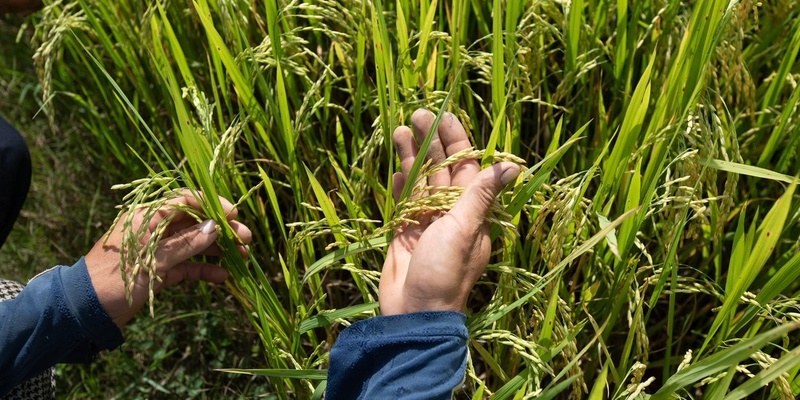Blog: Why plant health matters in the One Health approach
Posted on Mon, 26 Jun 2023, 08:31

© FAO/Than Rathany
By Osama El-Lissy, IPPC Secretary
As we work towards a zero-hunger world and aim for better lives for all, it is essential that plant health continues to play its vial role in the nexus between human, animal and environmental health. All are interdependent on each other. Here’s why.
Healthy plants provide safe and nutritious food for billions of people around the world, yet plant pests damage almost 40 percent of global crops. The most vulnerable populations suffer the most, particularly those already facing food insecurity from the impact of climate change, conflict or natural disasters. Recent trends in global hunger forewarn that there will be more people going hungry in the coming years, on top of the 828 million people who were hungry in 2021. This should be enough impetus for us actors in the One Health framework to consider plant health more conscientiously.
In addition, healthy ecosystems and biological diversity are critical for a healthy environment which is crucial for plants to thrive. However, invasive alien species continue to harm biodiversity and are one of the biggest causes of its loss. A changing climate has also created new favourable areas for plant pests to breed and proliferate. If left unchecked, plant pests and diseases can affect our food sources including agricultural production, forests and aquatic resources. In addition, increased pest incursions can increase our dependence on pesticides. All these factors impact our health and wellbeing in one way or another. But, we can do something to turn things around.
Setting and complying with international plant health standards can curb the damages that plant pests cause to human, animal and environmental health. The International Plant Protection Convention (IPPC) and International Standards for Phytosanitary Measures (ISPMs) make provisions that countries can adopt to prevent the entry and spread of plant pests. These measures also make trade of plants and plant products safer and free from pests.
For instance, applying plant health standards allows countries to respond appropriately to the presence of plant pests or to mitigate pest entry through contaminated sea containers in the trade of plants, agricultural or forest products. Such standards also allow importing countries to have traded goods undergo diagnostic treatment if found to be carrying plant pests. This prevents pests being introduced into the importing country where they could damage local flora, and therefore local economy and livelihoods.
In addition, assessing the impact of climate change on plant health over time gives us scientific evidence on how plant pest behaviours change as temperatures increase. This gives the plant health community – scientists, farmers, industries, researchers and others – insights on how such phenomena could potentially cause greater damage to food security and the environment as pests move to new areas. We can thus develop tools and innovation to prevent this.
At IPPC, we fully support the principles of One Health where plant health co-exists in the human, animal and environmental interface. Plants provide more than 80% of the food we eat and 98% of the oxygen we breath. Our lives simply depend on plants, and that’s why plant health matters.

